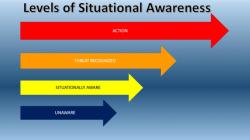How to pinpoint your passion?
Pinpointing your passion involves a process of self-discovery and exploration to identify the activities, interests, and pursuits that bring you joy, fulfillment, and a sense of purpose. Here's a guide to help you pinpoint your passion:
Reflect on Past Experiences:
- Consider activities or experiences that have brought you joy or a sense of accomplishment in the past. Reflect on your childhood hobbies, school projects, or any activities that made you lose track of time.
Identify Your Strengths:
- Take stock of your skills and strengths. What are the things you excel at, and what do others often commend you for? Passion often aligns with our natural talents and abilities.
Explore Interests:
- Try new things and explore different interests. Attend workshops, join clubs, or participate in activities that pique your curiosity. Exposure to various experiences can help you discover what resonates with you.
Pay Attention to Curiosities:
- Take note of the topics or subjects that spark your curiosity. What do you find yourself reading about or watching documentaries on in your free time? Your passions are often connected to what genuinely fascinates you.
Set Aside Fear of Judgement:
- Don't let fear of judgment or external expectations cloud your self-discovery. Be open to exploring unconventional interests or pursuits that genuinely resonate with you, even if they don't align with societal norms.
Consider What You Would Do for Free:
- Think about activities you would happily do for free. Your passion is often linked to things you enjoy so much that the idea of getting paid for them seems like a bonus.
Assess Your Values:
- Consider your values and what matters most to you. Your passion is more likely to align with your values and contribute to a sense of purpose in your life.
Visualize Your Ideal Life:
- Envision your ideal life. If you could design your perfect day, what activities would you include? This visualization can provide insights into your true passions and desires.
Seek Feedback:
- Ask friends, family, or colleagues for feedback. Sometimes, others can offer valuable perspectives on your strengths and the activities that bring out your best.
Experiment with Side Projects:
- Start small by experimenting with side projects or hobbies. This could be writing, painting, coding, gardening, or anything that interests you. See how these activities make you feel and whether they ignite a passion.
Embrace Trial and Error:
- Understand that pinpointing your passion is often a process of trial and error. You may try several activities before discovering the one that truly resonates with you. Be patient with yourself and embrace the journey.
Seek Professional Guidance:
- If you find it challenging to identify your passion on your own, consider seeking the guidance of a career counselor, life coach, or therapist. Professionals can provide valuable insights and tools for self-discovery.
Remember that passions can evolve over time, and it's okay if your interests change. The key is to stay open to self-exploration, embrace curiosity, and allow yourself the freedom to pursue what truly brings you joy and fulfillment.
How can individuals identify and pinpoint their passion?
There are a few different ways that individuals can identify and pinpoint their passion. Here are a few tips:
- Think about what you enjoy. What do you like to do in your free time? What activities make you feel alive? What are you good at?
- Pay attention to your energy levels. What activities give you energy? What activities drain you?
- Consider your values. What is important to you in life? What do you want to achieve?
- Talk to people who inspire you. Ask them about their passions and how they discovered them.
- Experiment with different things. Try new activities and see what you enjoy.
Once you have a good understanding of what you enjoy, your strengths, and your values, you can start to narrow down your passions. Ask yourself:
- What could I do for the rest of my life and never get bored?
- What problems am I passionate about solving?
- What kind of impact do I want to have on the world?
Answering these questions can help you to identify your true passion.
Are there self-reflection exercises or tools to uncover personal passions?
There are a number of self-reflection exercises and tools that can help you to uncover your personal passions. Here are a few examples:
- Passion mapping: This is a visual exercise that can help you to identify your passions and values. To create a passion map, simply draw a circle and divide it into four quadrants. In each quadrant, write down your answers to the following questions: What do I love? What am I good at? What do I value? What impact do I want to have?
- The Ikigai Venn diagram: This diagram is used to identify the intersection of your passions, skills, values, and mission. To create an Ikigai Venn diagram, simply draw a four-circle Venn diagram and label each circle with one of the following categories: passions, skills, values, and mission. In each circle, write down your answers to the corresponding questions.
- The CliftonStrengths assessment: This assessment is designed to identify your top five strengths. Once you know your strengths, you can start to think about how to use them to pursue your passions.
What role does experimentation play in discovering one's passion?
Experimentation plays a vital role in discovering one's passion. It is impossible to know what you are passionate about unless you try new things.
Here are a few tips for experimenting with different things:
- Take a class. This is a great way to try something new without having to commit to a long-term commitment.
- Join a club or group. This is a great way to meet people who share your interests and learn more about different activities.
- Volunteer. This is a great way to give back to your community and try new things at the same time.
- Talk to people who do different things. Ask them about their jobs, hobbies, and interests.
The more you experiment, the more likely you are to find your passion.
Remember, it is okay to change your mind about your passion. It is not set in stone. As you grow and change, your passions may change as well. The important thing is to keep exploring and trying new things.













